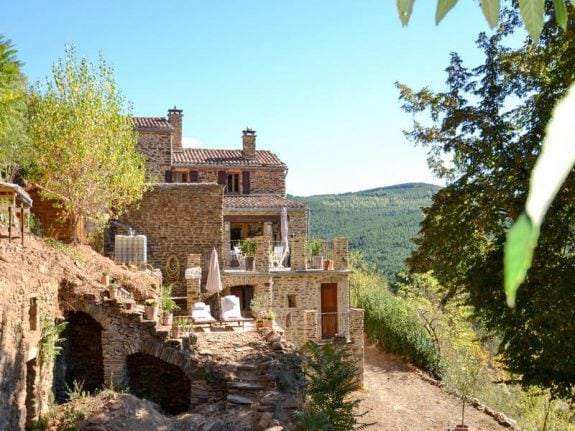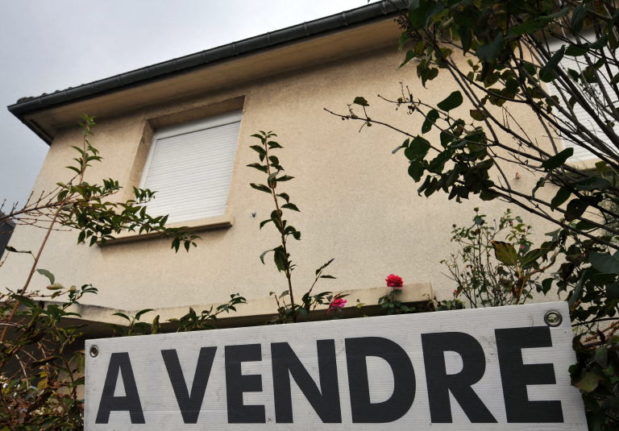Where is it?
The property itself is described as “isolated” which will tempt those who want a lot of peace and quiet but it is located near the village of Saint Cecile d'Andorge in the Gard Department.
The village is located in the picturesque Cévennes national park in the former region of Languedoc-Roussillon, now part of Occitanie.
The increasingly attractive Mediterranean city of Montpellier is just under two hours drive away to the south.
The international airport at Marseille is just over two hours drive and offers international flights to the UK and other parts of Europe.

How much does it cost?
The current price is €555,000 or £489,305 depending on exchange rates.
Describe the house
The 4/5 bedroom stone farmhouse has been almost entirely renovated and so is in an excellent condition. The house is surrounded by over 14 acres of countryside, which include fine walks.
The stone has been pointed, both inside and outside the house, and original materials like lime have been used to finish the farmhouse. There is underfloor heating throughout, and all rooms have WiFi.
With a view to large families or a B&B, there are two magnificent bedrooms on the ground floor, both with state of the art bathrooms.
These rooms look out over the Cévennes national park, and can be accessed from inside, or externally.
The main terrace faces W and S, and is sunny all day…you can even have Christmas lunch here if the weather is good. From here you have a panoramic view over the valley.
There are three bathrooms in all and the total size of the house is 200 square metres. There are also barns and outbuildings on plot whose total size is 61 273 square metres.
Why buy it?
Leggett Immobilier say: “This lovely stone farmhouse, on four floors, looks out over the stunning landscape of the Cévennes. The house has been virtually completely renovated, using fittings and materials of a very high standard…..with a remarkable result.
The house is built on a hillside, and although there are neighbours, you feel alone in the grandeur.”
And the pictures:









For more information on the property CLICK HERE.



 Please whitelist us to continue reading.
Please whitelist us to continue reading.